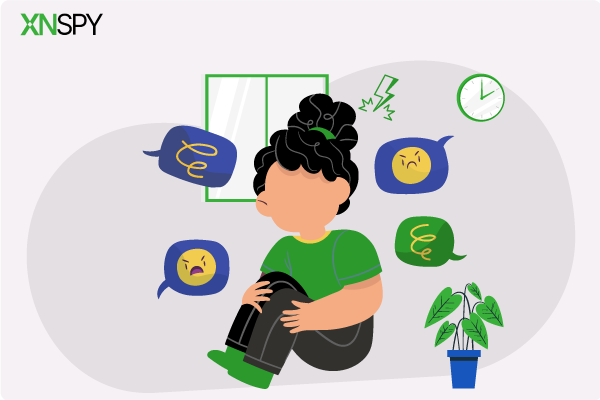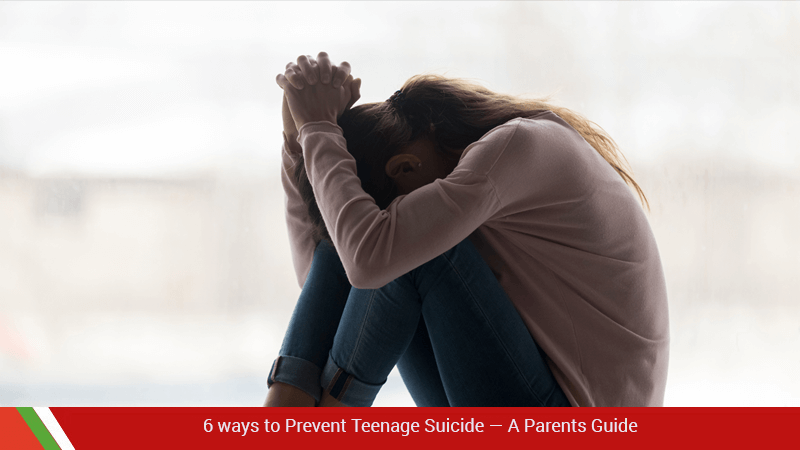The complete monitoring experience for your phone
Get XNSPY and start tracking calls, texts, multimedia, locations and more on any phone!
Get Started Now Live DemoToday’s tech-savvy teenagers are facing challenges no previous generation has faced. Technology has faced the landscape for teenagers to perform and learn in an awkward environment. Our teenage kids are exposed to several internal and external struggles.
The research states that between 13 and 19, teenagers go through hormonal changes. They feel an extended peer and parental pressure that limits their ability to solve problems. Due to the advent of digital communications, teens’ ways of interacting with their peers and parents have changed. Overuse of technology has also linked teenagers with a dysfunctional social life.
Since today’s teenagers use their electronic devices to date, sleep, learn, and exercise, teens struggle with a multitude of social problems every day. There is a need for parents to approach these problems of teenagers and devise positive solutions for them.
In this post, we are listing some of the most common issues/problems faced by teenagers today and also discover possible solutions to those problems. Let us begin!
1. Conflicts with Peers
As many teenagers seek independence, most of them end up arguing with their parents and siblings. There are dire consequences of constant conflicts such as skipping school, domestic violence, and traffic violations. Conflicts lead them beyond the norms of rebellion.
Since no two individuals process thoughts in the same manner, a difference of opinion is natural. However, such differences of opinion should not turn into debates that turn into fights.
The solution for this problem lies in the foundation of trust. Since children often need a bond or relationship with parents to solve their social problems, doubting them or spying on their smart devices can damage their trust. Some parents spy on their teens’ digital devices with apps such as Xnspy without their consent. This generates conflicts between teenagers and parents and impacts their self-esteem.
Parents should try to be flexible with kids and accept their opinions to avoid conflicts. It is always great to allow teenagers to reveal their thoughts. Managing conflict starts with compromising and accepting their thoughts.
2. Poor Confidence Problem
Adolescents experience a significant lack of confidence. When kids fail to achieve their teenage dreams or goals, their self-confidence often drifts apart. In such circumstances, even the slightest negativity can hurt their feelings.
A lack of confidence makes kids more resentful and shameful; help them to avoid exposing their vulnerable sides.
3. Stress Management
According to the American Psychological Association, one-fifth of US teenagers worry and undergo significant stress. Many sources of stress include continuous failure in academics and unfriendly parenting styles.
Family help and guidance can help teens to cope with growing stress. Parental interaction will reduce negative self-talk and encourage kids to build positive relationships.
4. Communication Skills
The communication gap often hinders teens to pour out their hearts and eliminate feelings of loneliness. The communication gap between parents and children often leads to kids seeking help from outside the walls of their homes. As a result, children may develop negative relationships and hide important things.
Parents should understand and listen to the suppressive thoughts of their young ones. In this situation, enforcing attentive listening holds the key to effective problem-solving and also bridges the communication gap.
5. Anger Management
Teens often find it difficult to control their impulses and show hostile emotions frequently. Some kids demonstrate hysterical behavior when feeling rejected. Negative emotions bring sudden changes to their moods and increase the chances of misconduct.
Proper anger management can solve kids’ emotional problems. For example, parents must exercise empathy to minimize their aggressive behavior. Teach your child the importance of forgiveness to manage their anger effectively.
6. Obesity Management
According to the Center for Disease Control and Prevention, in the United States, more than 20% of kids between 12 to 19 years are overweight. Compared to Asians, more Hispanic children are obese that leads to social isolation and bullying at school.
Such kids also face several health-related issues such as heart disease and cancer. They often develop eating disorders and struggle with improving their appearances.
Sadly, some parents underestimate their child’s excessive weight problems and do not consult a pediatrician. Doing otherwise can help teens to solve their height and weight problems. Find a way to support and empower your teenager by devising a healthy eating plan to prevent obesity.
Parents can have a vital influence on their kids. Teens often feel misunderstood and dejected due to their family and environmental circumstances. We need to carefully listen to their problems and allow them to open their hearts to avoid social problems.
Some kids may be tempted to go the wrong way when feeling jealous or rejected. Their attitudes can be corrected by accepting their shortcomings and allowing them to build a strong bond. Trying to be more flexible with kids can encourage them to accept your opinions.


